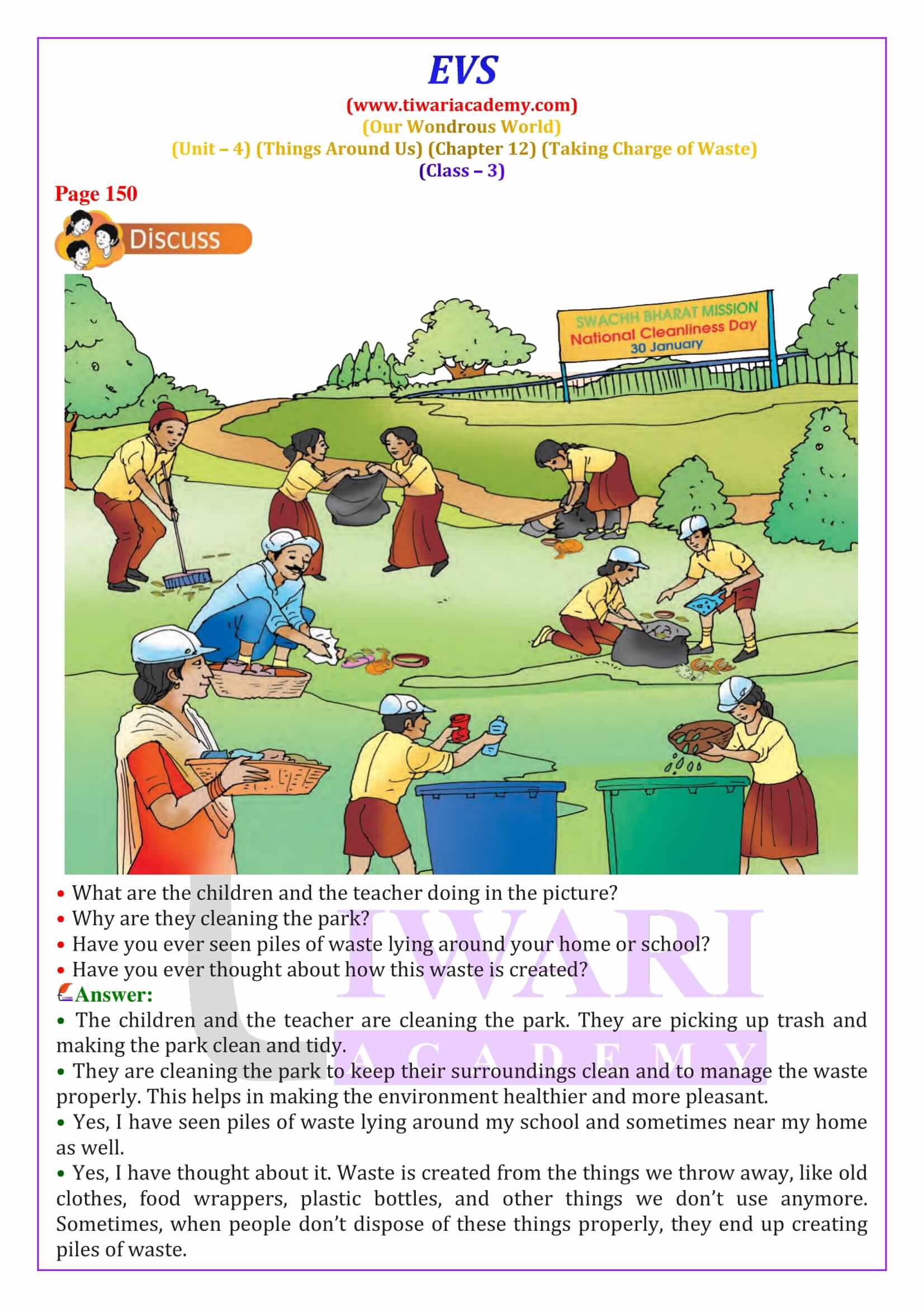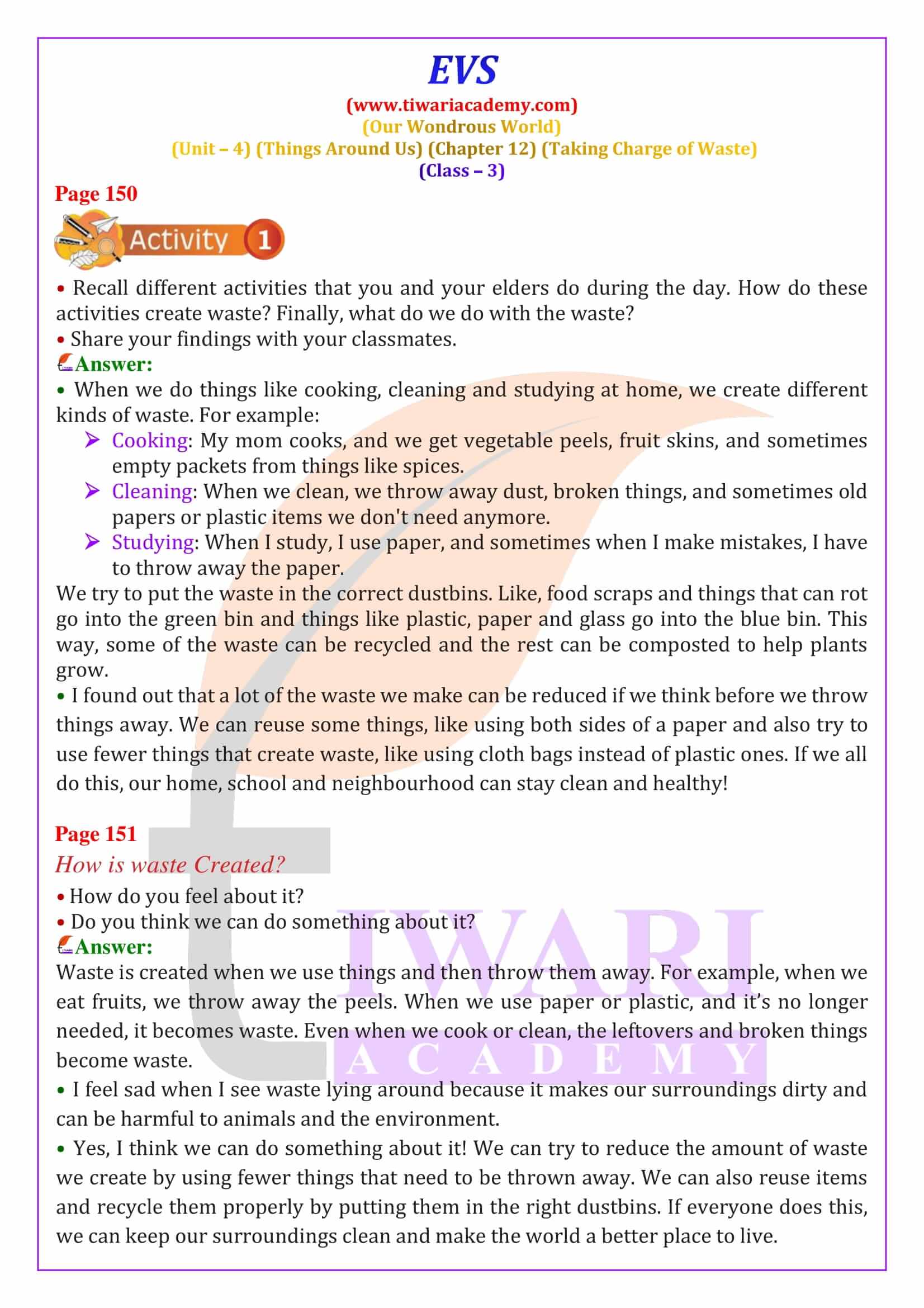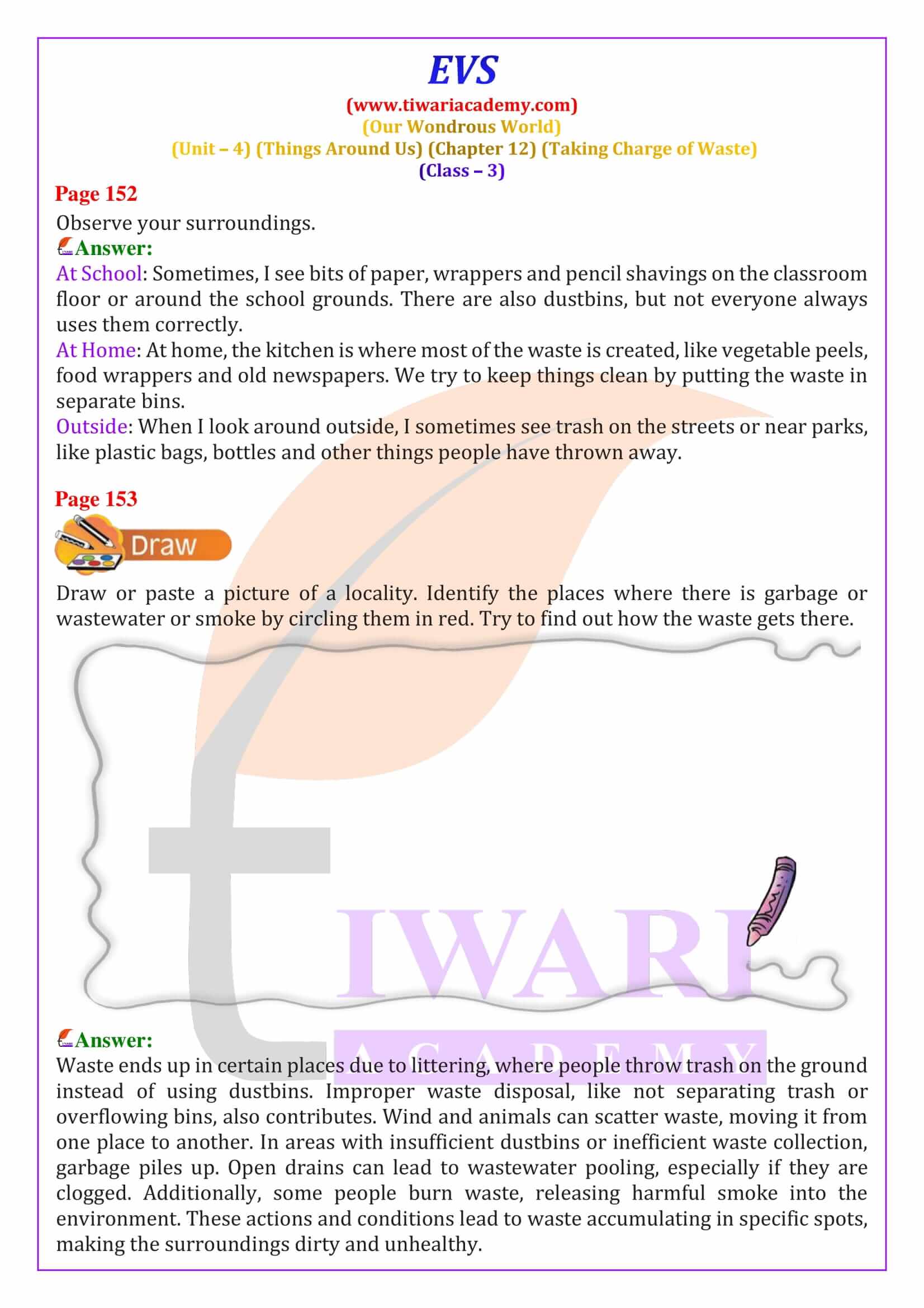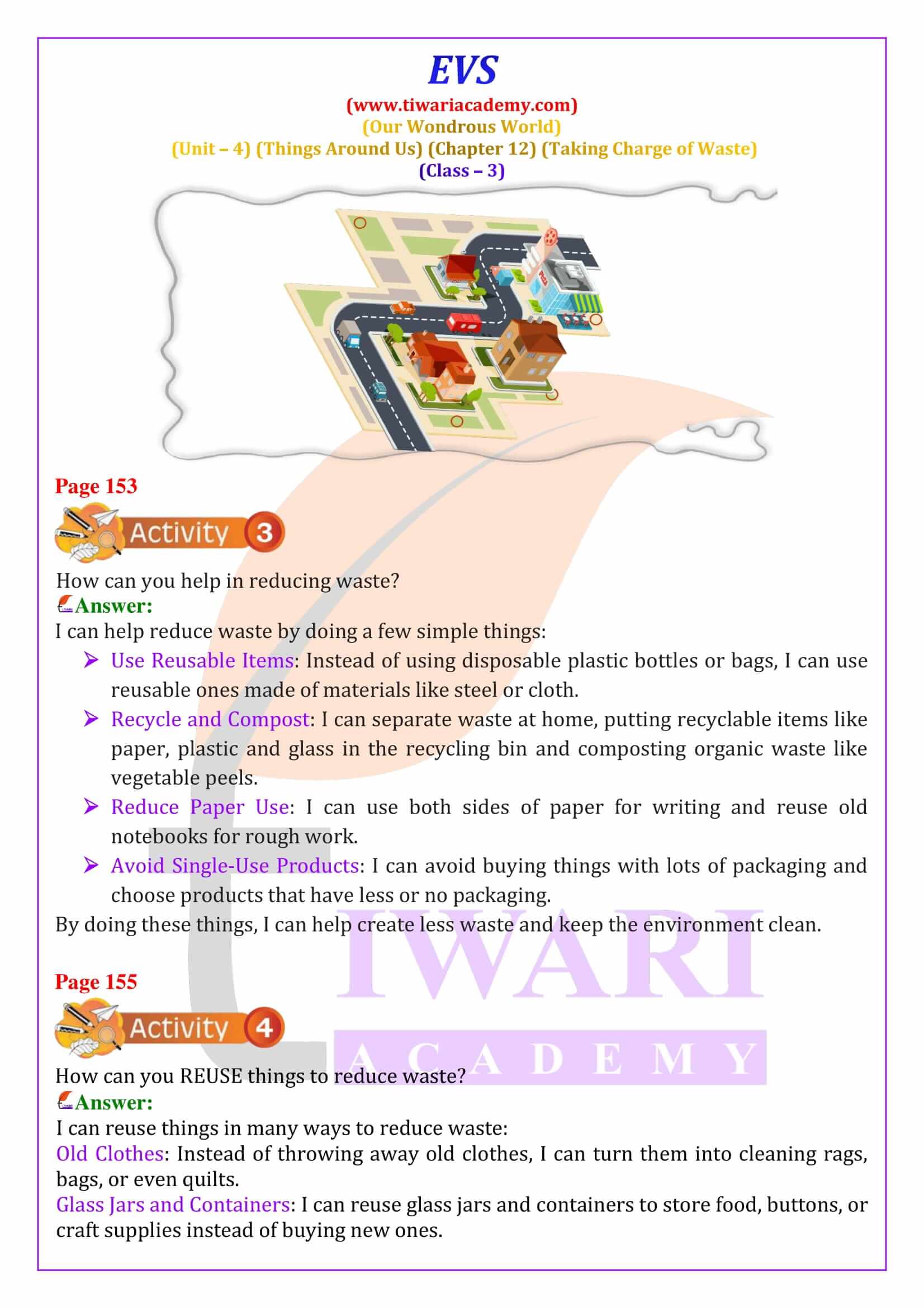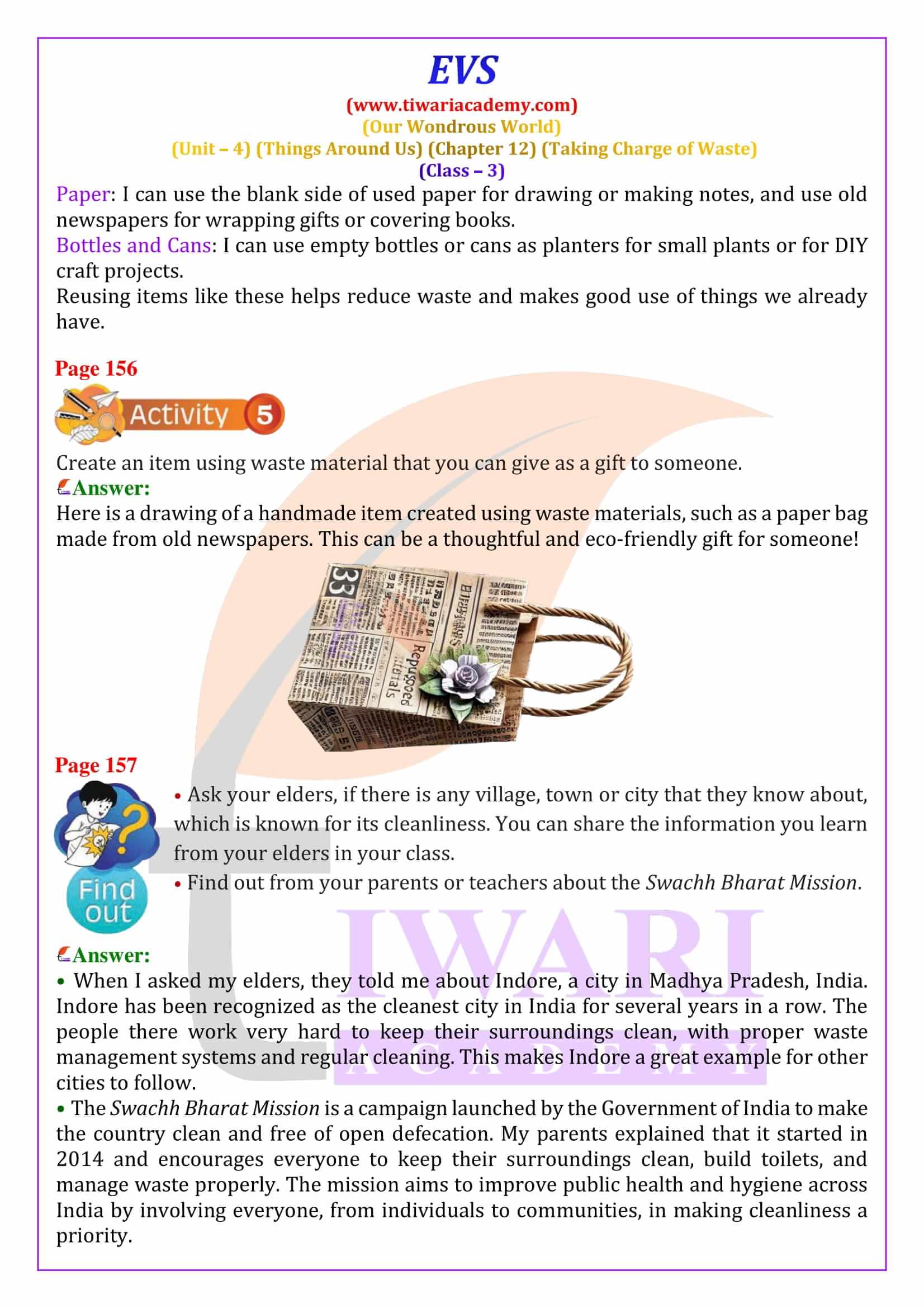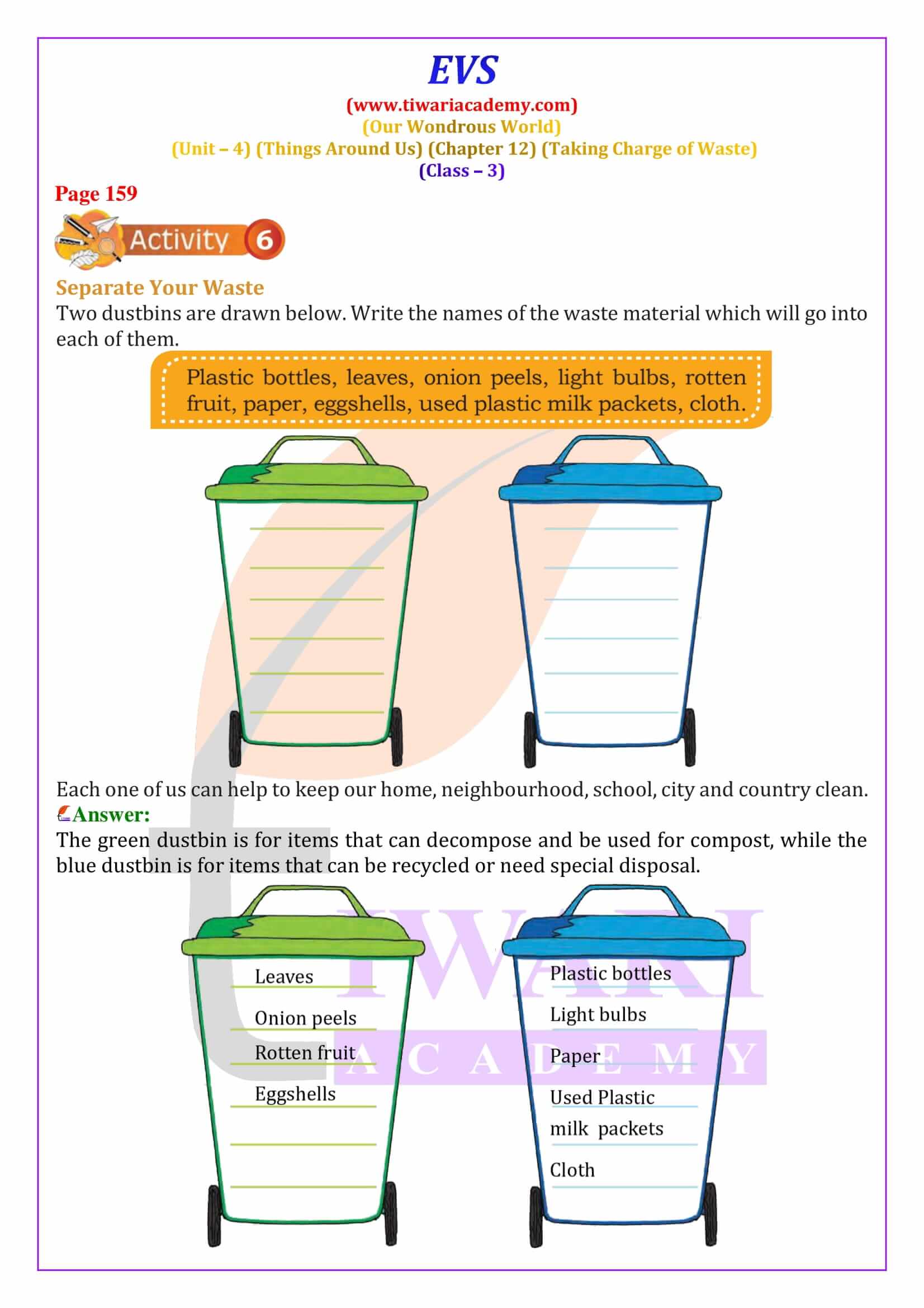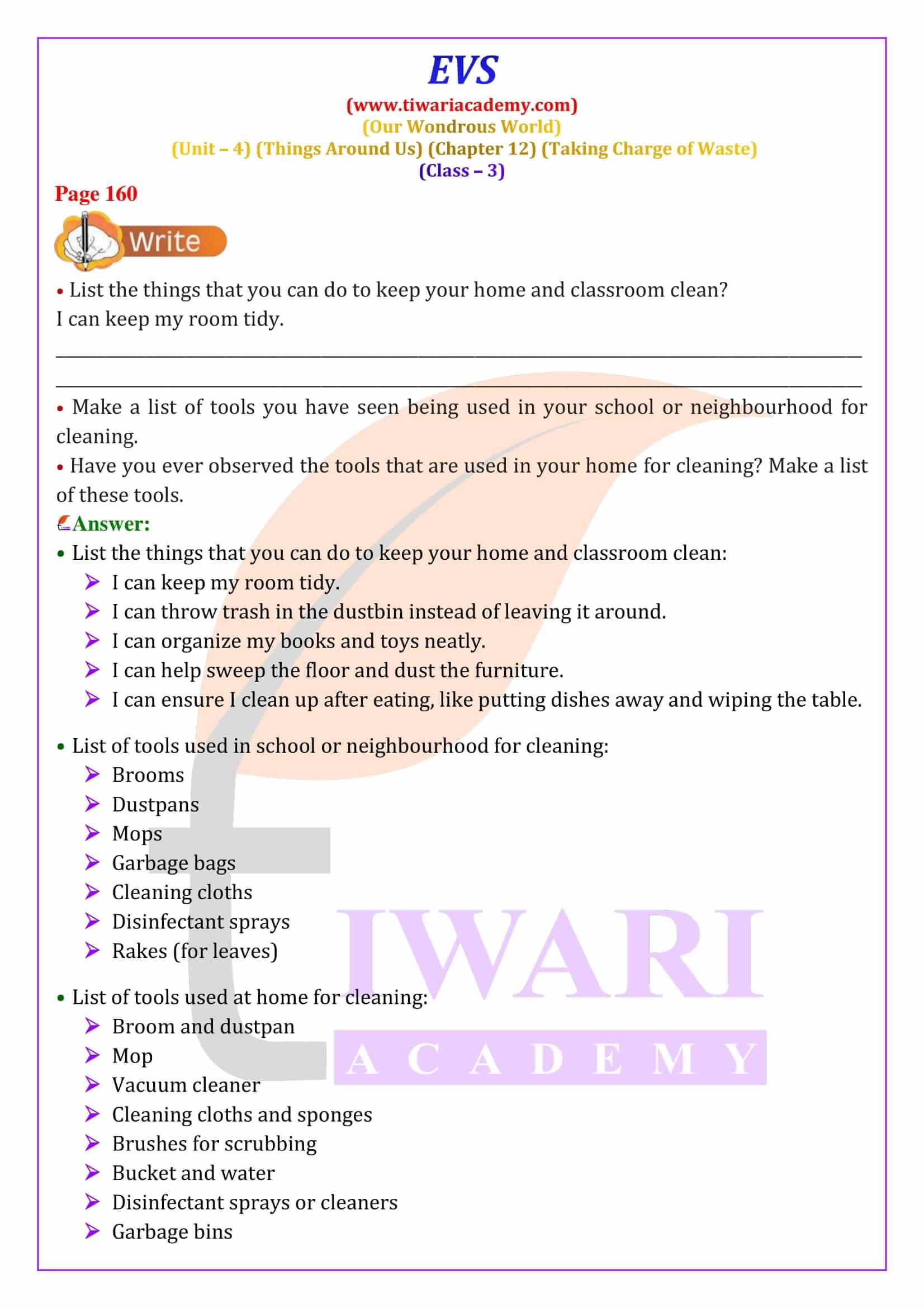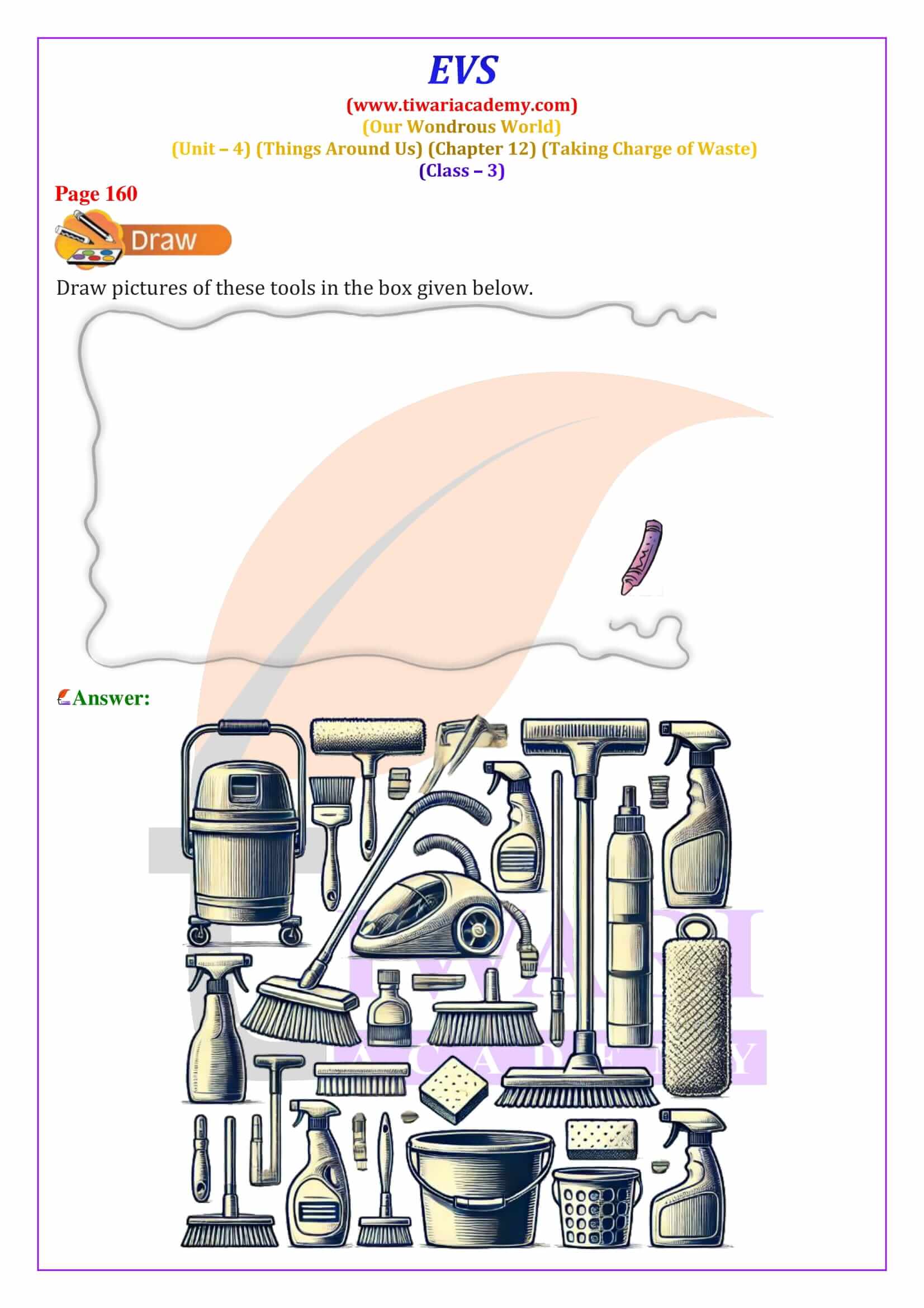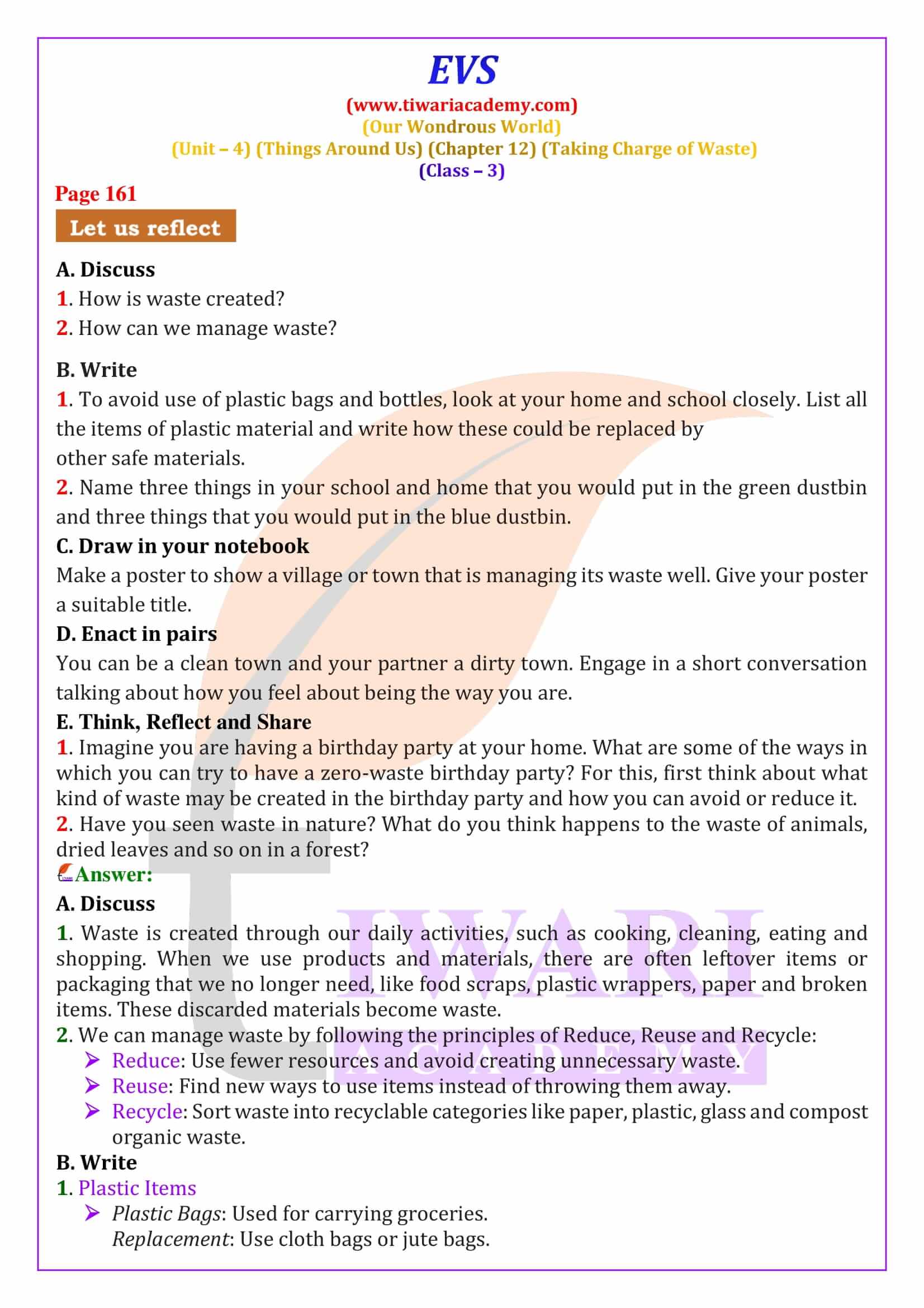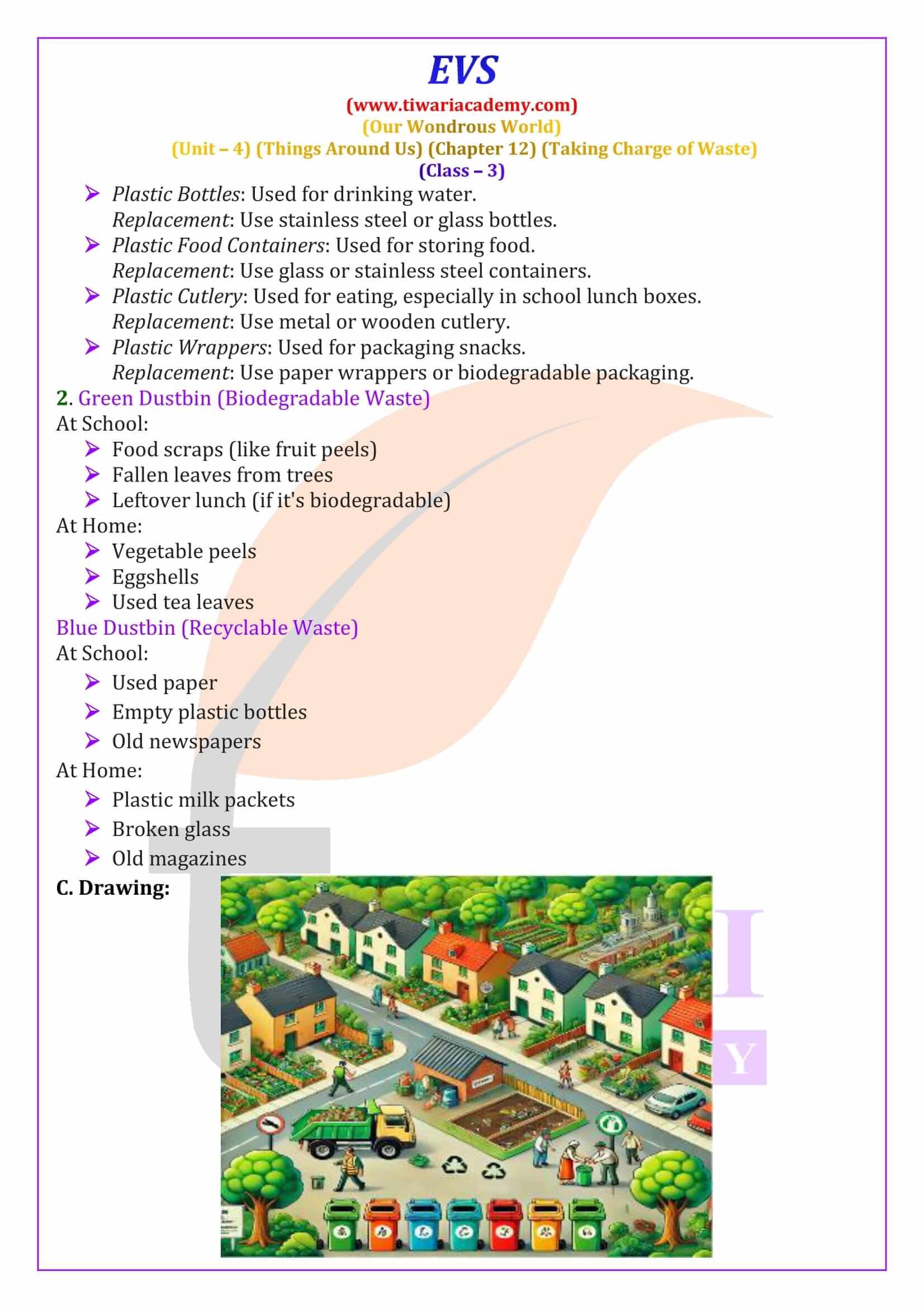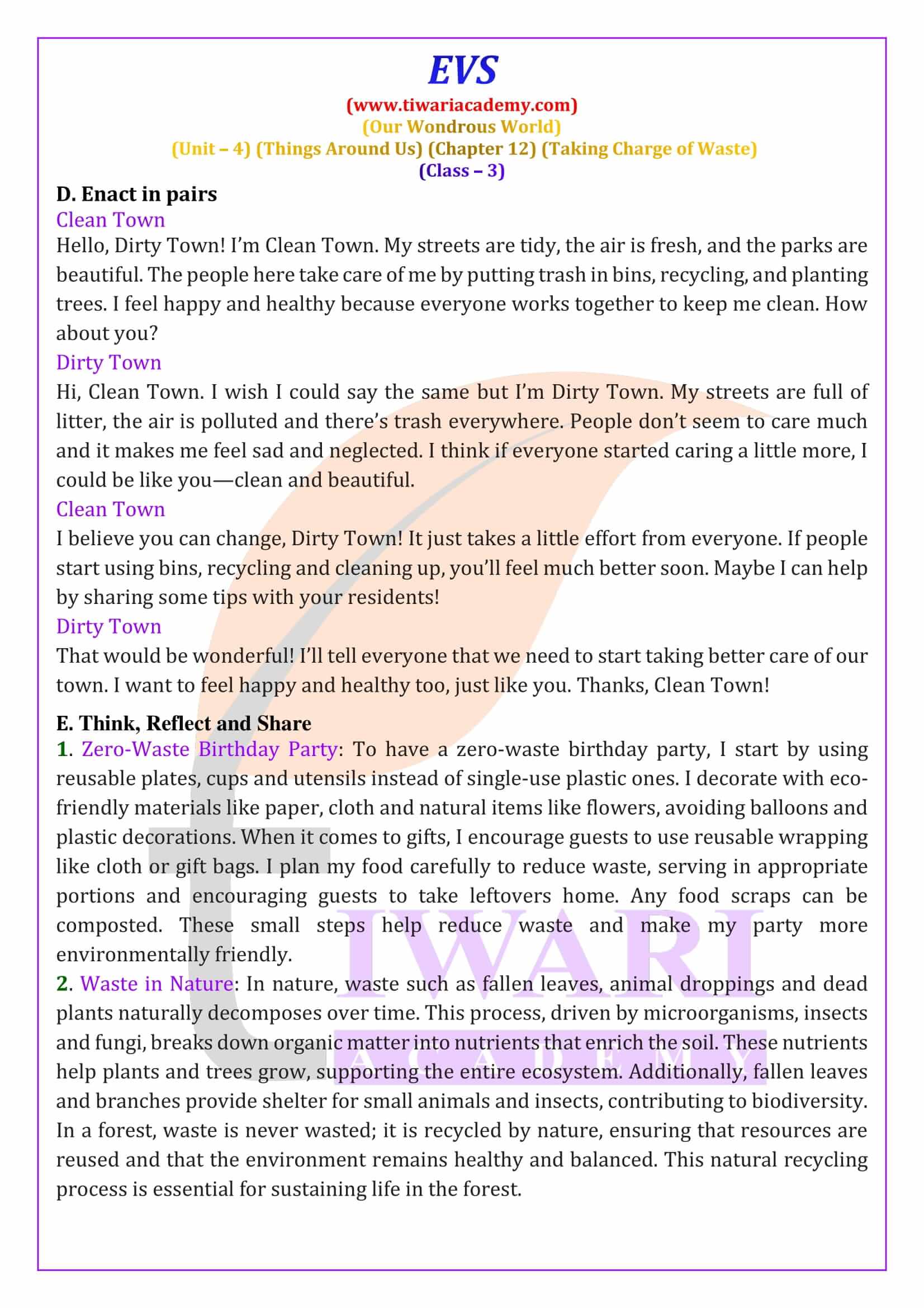NCERT Solutions for Class 3 EVS Chapter 12 Taking Charge of Waste of Our Wondrous World updated for the session 2025-26. It educates students on responsible waste management. Class 3 EVS Chapter 12 covers types of waste, recycling and the impact of improper waste disposal, encouraging students to adopt environmentally responsible habits.
Class 3 EVS Chapter 12 Taking Charge of Waste Question Answers
Understanding Chapter 12 Taking Charge of Waste
In our everyday lives, we create a lot of waste without even realizing it. When we throw away old clothes, plastic wrappers, vegetable peels, or broken toys, all this waste ends up in big piles in our surroundings. This waste doesn’t just disappear; it stays around and sometimes causes problems. For example, waste can make our homes, schools, and parks look dirty and can even be harmful to animals if they accidentally eat something they shouldn’t. It’s important to think about how we can reduce the waste we create and what we can do to manage it properly.
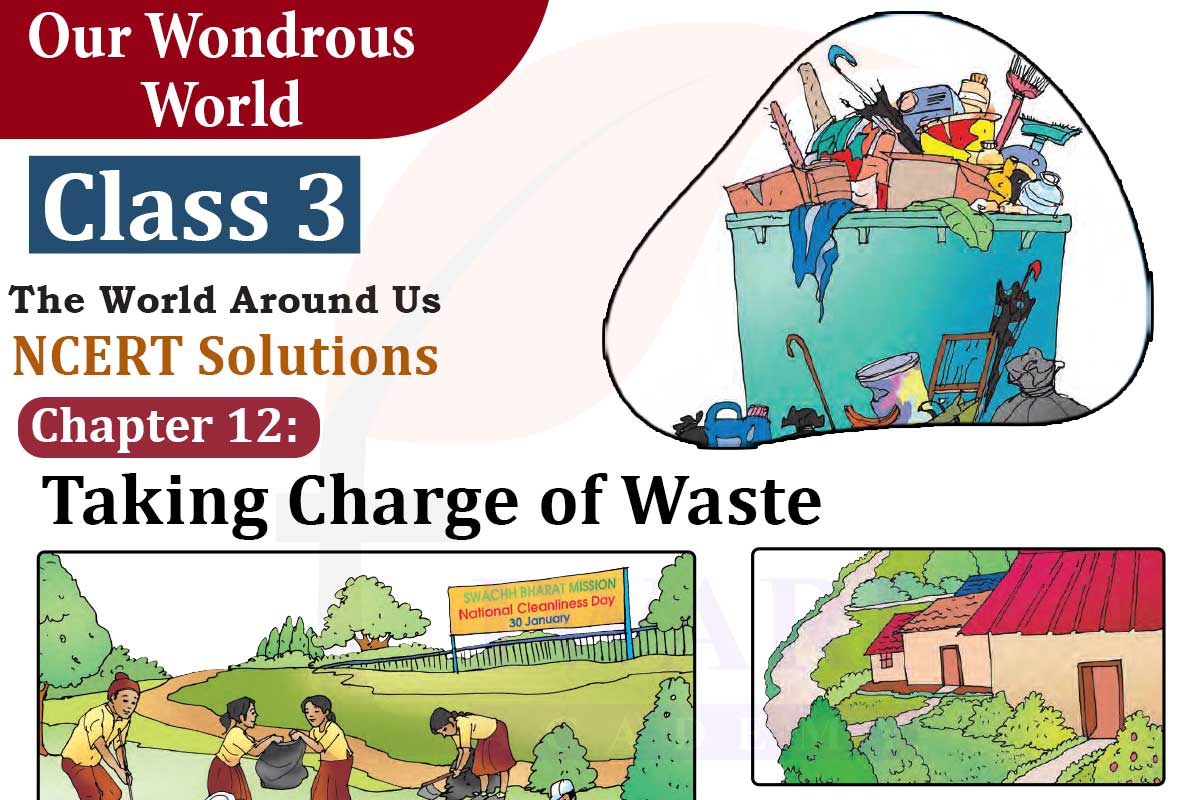
The Problem of Waste
Waste that is not managed well can lead to many problems. When trash piles up, it attracts flies and mosquitoes, which can spread diseases. Sometimes people burn waste, like plastic, which releases harmful gases into the air. These gases are not good for our health and can make us sick. Dirty surroundings also make it hard for us to enjoy our neighborhoods, parks, and playgrounds. But the good news is that we can all help to manage waste better. By learning how to handle waste, we can keep our surroundings clean and healthy.
Ways to Manage Waste
Managing waste means finding better ways to deal with the trash we create. One simple way is to use dustbins for different types of waste. You might have seen two types of dustbins – a green one and a blue one. The green dustbin is for things like fruit peels, vegetable scraps and dried leaves, which can be turned into compost. The blue dustbin is for materials like plastic, glass and metal, which can be recycled to make new things. By putting waste in the right bin, we help keep our environment clean and reduce the amount of trash that ends up in landfills.
Reduce, Reuse, and Recycle
One of the best ways to manage waste is by following the three Rs – Reduce, Reuse, and Recycle. First, we should try to reduce the amount of waste we create by using fewer disposable items. For example, instead of using plastic bags, we can use cloth bags that we can use again and again. Second, we can reuse things instead of throwing them away. Old clothes can be made into quilts, and old bottles can be used to store things. Finally, recycling helps turn old items into new ones, reducing the need to create more waste.
Learning from Clean Places
There are many places in India, like the village of Silluk in Arunachal Pradesh, that have become very good at managing waste. These places have clean roads, no trash lying around, and people work together to keep their surroundings tidy. Silluk is known as a ‘zero waste village,’ meaning it has found ways to reduce waste to almost nothing. Other towns like Indore and Mysuru are also examples of clean cities. We can learn a lot from these places about how to manage waste better and keep our environment clean.
Doing Our Part
Each of us can play a role in keeping our homes, schools, and neighborhoods clean. It’s as simple as using the right dustbin, picking up trash when we see it, and teaching others how to manage waste. We can also join cleanliness drives, where people come together to clean up their surroundings. By sharing what we learn with our friends and family, we can help make our community a cleaner place to live. Remember, small actions by each person can make a big difference.
Find More Help with Tiwari Academy
At Tiwari Academy, we want to help you understand how to take care of waste and keep your surroundings clean. We have explained all the questions and answers from Chapter 12 of your EVS book in a simple and easy-to-understand way. You can find all the solutions on our website. By learning how to manage waste properly, you will not only help keep your environment clean but also become a responsible citizen. Let’s all work together to create a cleaner and greener world!
